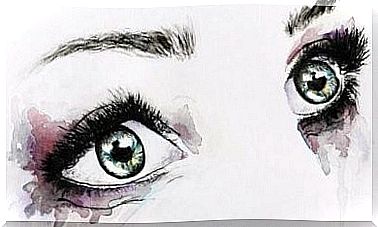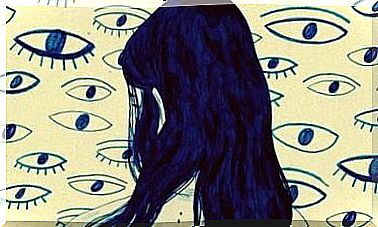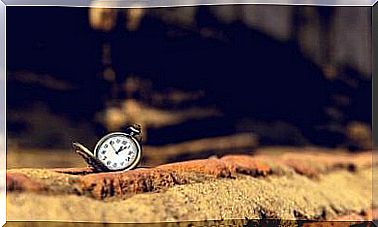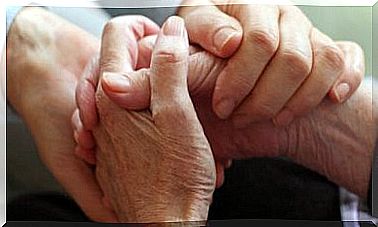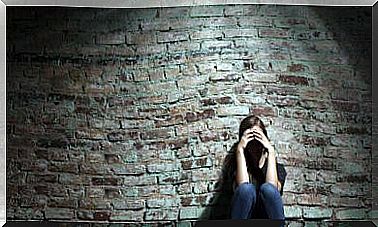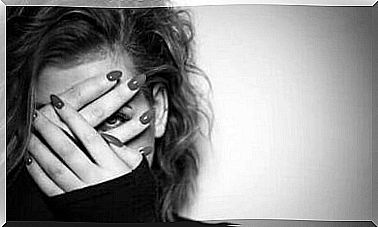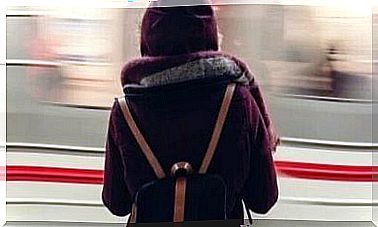The Relationship Between Self-abuse And Self-esteem

Self-abuse is the opposite of actions that give us self-esteem and is much more common than we might think. We judge ourselves by who we are, what we deserve and how valuable our work is. We usually make these assessments internally and keep them to ourselves. At the same time, we also magnify our mistakes.
Consequently, we tend to be very self-demanding and feel that things can always be done in a better way. This can affect our self-esteem. We may even despise our own actions and think that anyone could have done better than us.

How does self-abuse and self-esteem work?
Self-esteem is generally people’s ability to value themselves. This also includes the challenge of facing all the negative thoughts that other people have about us.
Low self-esteem makes people more receptive to criticism from others, which increases the likelihood that they will believe what these people say and take it to heart. That is when the “inner dictator” of self-abuse begins to develop. We degrade our performance, become less tolerant of our mistakes and are ashamed of them, etc.
Self-abuse: the origin of the “inner dictator”
You begin to be exposed to the perceptions and judgments of others from the moment you are born. Your motivation, or lack thereof, is an indicator of the capacity you have to defend yourself from criticism.
If you see from these early experiences that your failures will be punished and that your performance will be diminished, you will probably see yourself as someone with few resources.
In addition, it becomes especially important not to fail. Because if you do, you have to deal with others’ judgments and criticisms. If the motivation not to fail becomes more important than the performance, you may lose the value that all your performance can give you. This may mean that you may not take the criticism constructively.
In this dynamic, you can easily internalize others’ criticism of you and begin to consider yourself less worthy. As a result, you may actually begin to criticize yourself much more ruthlessly than these people did. You can begin to harbor the belief that you are not valuable or worthy of love.
Consequently , self-esteem goes hand in hand with self-abuse. You may begin to believe that your being is based on your achievements, and in turn you experience yourself as less worthy.
Self-abuse and self-esteem: how to spot problems
Normalizing self-abuse is very dangerous. It not only hurts self-esteem, but can also lead to more dangerous forms of mood disorders, especially depressive disorders.
Self-abuse does not come from nowhere. This kind of negative attitude towards yourself is something that builds up over years. Sometimes you can also have a hard time distinguishing other people’s criticism from your own.
When self-abuse begins to take root in your life, you also see the most constructive criticism you receive from others, designed to help you improve yourself, as proof of failure. For example:
- Have your superiors and colleagues at work ever recommended that you do a task differently to get better results and the only thing you thought about was how badly you performed it ?
- How many times have you just thought about your mistakes even though other people just praised your accomplishments?
- Have you ever thought that you are not worth the job you have? Do you think that many others could do better than you, and that your bosses will notice at any moment?
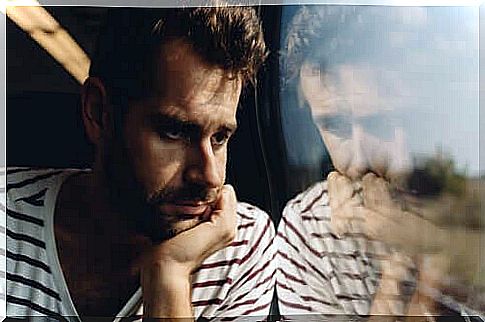
Stop in your life to stop the “inner dictator” in his tracks
The voice of your “inner dictator” can be so strong that it can paralyze your valuable actions. If you end up with activities that you consider valuable, you will fall into the trap of your negative dictator.
What we are talking about here is the extent to which other people have judged you from your earliest childhood, in addition to the criticism you are currently experiencing. This shows the extent to which you base your life on trying to avoid failure.
Trying to avoid failure means that you are not willing to experience discomfort on the way to achieving your goals. But even though you live this way, you will not get rid of the “inner dictator” of self-abuse. This will probably tell you that you are in the situation you are in because you are afraid and unable to handle it.
But what role does self-esteem play?
Have you ever taken a step back to consider your situation as if you were someone else who responded to the criticism you receive? If you stop for a while to consider this perspective, you will probably realize how your mind, in its “self-abusive mode”, moves you away from things that are important to you.
Listening to your internal dialogue and believing that it is an absolute truth can be frustrating when trying to strive for goals. Many times your mind will tell you that you are not capable.
However, trying to remove the “inner dictator” is like removing weeds from a garden. You can pull them up, but they will keep growing.
Reading books about self-esteem also does not help to eliminate these forms of self-abuse. They only provide guidelines for how you can improve your self-esteem and are really just additional sources of knowledge based on many years of experience.
However, we would like to tell you that there is a very positive alternative available to you. When fighting in the battle between self-abuse and self-esteem, there is another perspective you can try. This is the art of self-pity .
Self-pity helps you look at this struggle from a different perspective. It allows you to fail and make mistakes and then observe what happens in your inner world when this discomfort occurs.
